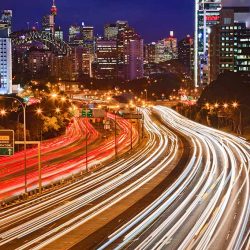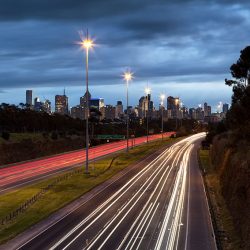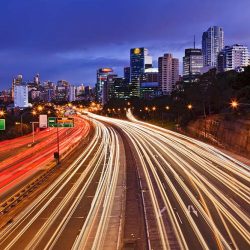Welcome back to our series on the future of transport in Australia. This blog series aims to discuss the latest report (Transport and Australia’s Development to 2040 and Beyond) released by the Department of Infrastructure and Regional Development.
In part one, we examined Australia’s current economic context and the future of Australian roads if no policy changes are made. In part two we identified the opportunities presented by new technologies geared at the transport industry
In our third instalment, we look at key infrastructure issues and what it takes to move freights in Australia.
What are the key transport infrastructure issues?
In the report, the Department of Infrastructure and Regional Development state that most of the transport infrastructure that Australian’s will use in the year 2031, has in fact already been built. The infrastructure has a major influence on the organisation of cities, impacting the flexibility and efficiency of labour and capital.
While it may already seem like the average Australian is paying more than their fair share in taxes, the rising cost of building and maintaining our roads is snowballing faster than road-related taxes and charges collected by motorists.
Moving freights
Transporting people is just one part of the equation. Australia has come to rely on goods transportation services to be a part of the world’s trade game, with Aussie businesses relying on speciality heavy haulage vehicles such as trailers and trains to connect farm or workshop to ports and airports.
The freight industry isn’t set to slow down either. It’s predicted to expand by 75% between now and 2030. In the current economic climate, the transport infrastructure needs to be flexible when providing transport capacity for the freight industry and the growing population.
What are the current challenges in freight transportation?
There are several aspects of cargo transportation that will be affected if policy towards transit-orientated development are not put into place. From congestion and urban sprawl issues alone, freight businesses could face issues such as reduced productivity, social exclusion on a national and international scale, increased emissions and even health impacts. Luckily, the trend shows policy addressing these key areas is expected to continue over the next few years.
According to the report, the development of efficient transport infrastructure will play a major role in unlocking the productivity gains that will reinforce Australia’s footing in a global market and benefit our financial prosperity.
The Drake Group is dedicated to building trailers for heavy equipment and freight movements that are efficient, save and have long-term durability and great resale value. For all your heavy haulage trailer needs, get in contact with The Drake Group today.


